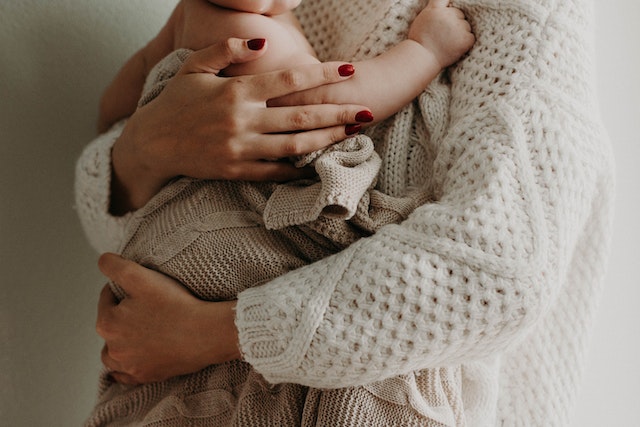September is Suicide Awareness Month and every year, the 10th of September is observed as International Suicide Awareness and Prevention Day. This is an important day globally as it underscores the need to reduce suicides as well as improve mental health.
In the maternal health sector, there is a clear link between mental health issues and maternal health, particularly because they increase maternal mortality. According to the World Health Organization, pregnancy and childbirth increases the likelihood of mental health problems for women globally. In developing countries, it is estimated that 1 in 5 women will experience mental health problems during the perinatal period. The perinatal period refers to the period between conception and the first year after childbirth.
The report by WHO shows that there are higher rates of mental health problems in Low and Middle-Income Countries such as Kenya, Uganda and Nigeria among others. To be able to improve maternal mental health, it is important to know why it occurs, the effects thereof as well as what can be done to offer accessible help and support for affected women.
Why does maternal mental illness occur?
Virtually any woman can get a mental condition during the perinatal period. It is, however, important to mention that certain factors increase this likelihood. These risk factors generally increase the chances that a woman will get a mental health condition during pregnancy and/or after childbirth. These risk factors include:
- Previous mental illness, particularly those occurring during the perinatal period.
- Family history of mental illness (even if undiagnosed)
- Perinatal loss (miscarriage, abortion, stillbirth or death of any child)
- Social isolation and poor support system, especially when combined with rejection by the family/community.
- Poor socioeconomic status, that is Increased poverty levels so that women are unable to fend for themselves and the baby
- Cultural nuances where women’s social status is less valued/ not deemed important.
- Exposure to violence, including but not limited to gender-based, domestic, sexual and during conflict situations such as war
- Negative mood changes while using varied contraceptive methods or fertility treatment.
- Unwanted or unplanned for pregnancy
- Drug and substance abuse
Gender and maternal mental health
It is interesting to note that a number of these risk factors are gender-specific. This is because gender, as outlined by this WHO report on gender and women’s mental health, “determines the differential power and control men and women have over the socioeconomic determinants of their lives, their social position, status and treatment in the society”.
Gender-specific risks from the list shared above, and which affect more women than they do men, include violence, socioeconomic status (lower income) and the societal expectations placed on women’s shoulders to care for everyone else but themselves.
What are the effects of maternal mental illness?
There are a number of effects of maternal mental illness, largely because they do not often get diagnosed. Part of the reason for this is that a number of symptoms such as fatigue and sleep disruption often overlap with changes that new mothers experience. Additionally, the gender stereotyping of what motherhood should look like usually trivializes such symptoms. Some of the effects of poor maternal mental health include:
- Poor physical health
- Less likelihood of seeking and receiving health care, both during pregnancy and postpartum.
- Increased risk for complications during pregnancy and after delivery.
- Increased risk for preterm labour, often with babies who have a low birth weight
- Predisposition to drug, alcohol and substance abuse.
- Significant medical costs and economic impact
- Inability for the affected women to care for themselves and their babies.
- Higher risk of suicide and/or infanticide in severe cases.
Maternal mental illnesses and increased risk of suicide
Mental illnesses in the perinatal period have been linked to increased maternal mortality. Studies show that suicide is the number one cause of maternal deaths in developed countries. In Kenya, there isn’t data to show the rates of (maternal) suicide, in part due to criminalization of suicide and societal stigma against suicide. This makes it harder to address maternal mental health holistically, and Kenya still has a long way to go as far as (maternal) mental health is concerned.
The impact of untreated maternal mental illnesses on children
As mentioned above, pregnancy and childbirth represents a vulnerable time for women. A woman’s mental state does not just affect her; it also has a great impact on the child, especially when undiagnosed and/or severe. When a woman is unable to take care of herself and her baby, this affects how the baby develops physically, socially, cognitively and behaviourally. Other effects of untreated maternal mental illness on the baby may include:
- Low birth weight and adverse birth outcomes
- Poor mother-baby attachment
- Malnutrition especially in low socioeconomic status areas.
- Increased rates of hospital admission
- Reduction in the immunization doses the baby receives.
With this in mind, it is important to find ways to improve maternal mental health care.
How can maternal mental health be improved?
Improving maternal mental health revolves around integrating mental health into already-existing primary maternal health care. This not only allows pregnant women and new mothers to get information, it also provides an intervention for maternal well-being as indicated by the Mental Health Innovation Network (MHIN).
In addition to this integration, it is also important to improve detection of maternal mental illnesses through routine screening. There are a number of screening tools which are used in the perinatal field, with the most popular been the Edinburgh Postnatal Depression Scale (EPDS). The EPDS is a 10-questionnaire with an outlined scoring system which helps determine moms who are at risk and require further evaluation. The EPDS is available in English and many other languages, including Kiswahili.
A second screening tool which has been recommended following a South-African based study is the ultra-short ‘Whooley Questions’ which comprises two questions. Its brevity makes it easy to administer, but this must be done with caution and a follow-up for accuracy.
Communities prosper when mothers thrive
Tackling the factors that contribute to maternal mental illnesses, and improving screening and detection of these conditions is key to the mental wellbeing of Kenyan women. This task is to be shared among various stakeholders – The Ministry of Health, hospitals, community workers and the society at large.



